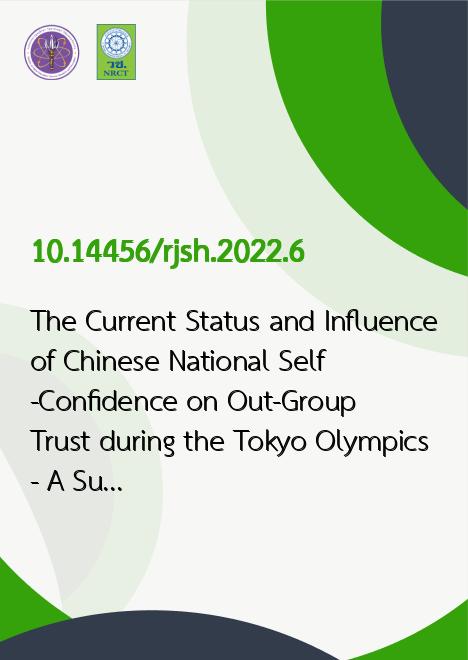
|
The Current Status and Influence of Chinese National Self-Confidence on Out-Group Trust during the Tokyo Olympics - A Survey of the Mainland Chinese Public |
|---|---|
| รหัสดีโอไอ | |
| Creator | Zheng Zheyun |
| Title | The Current Status and Influence of Chinese National Self-Confidence on Out-Group Trust during the Tokyo Olympics - A Survey of the Mainland Chinese Public |
| Publisher | Rangsit University |
| Publication Year | 2565 |
| Journal Title | Rangsit Journal of Social Sciences and Humanities |
| Journal Vol. | 9 |
| Journal No. | 1 |
| Page no. | 69-82 |
| Keyword | Chinese national self-confidence, Out-group trust |
| URL Website | https://rjsh.rsu.ac.th/ |
| ISSN | 2539-5513 |
| Abstract | The Tokyo Olympics was different from the motto of previous Olympics, especially incorporating the concept of “togetherness”. In today’s complex world, it is necessary for big countries to trust each other, eliminate barriers, and work together to unite and cooperate. During the Tokyo Olympics, China’s Internet community had a large-scale discussion in the face of discordant voices. The Tokyo Olympics should have been used to improve the trust of the mainland Chinese in other countries and regions, however; it proved to be counterproductive. Hence, this article discusses the issue of national self-confidence in mainland China and out-group trust. A survey of 714 mainland Chinese was conducted by initially establishing an effective national self-confidence scale and using an established out-group trust scale. It was found that the mainland Chinese public has good national self-confidence and a middle-level of out-group trust. National self-confidence and out-group trust are affected by age, education level, and region. SEM analysis showed that the national self-confidence had a moderately positive effect on the trust of out-groups while Independent group t-tests showed that the Olympic Games had a catalyzing influence on that relationship, increasing distrust of out-groups that previously had negative perceptions and creating more trust for out-groups that previously had positive perceptions. |